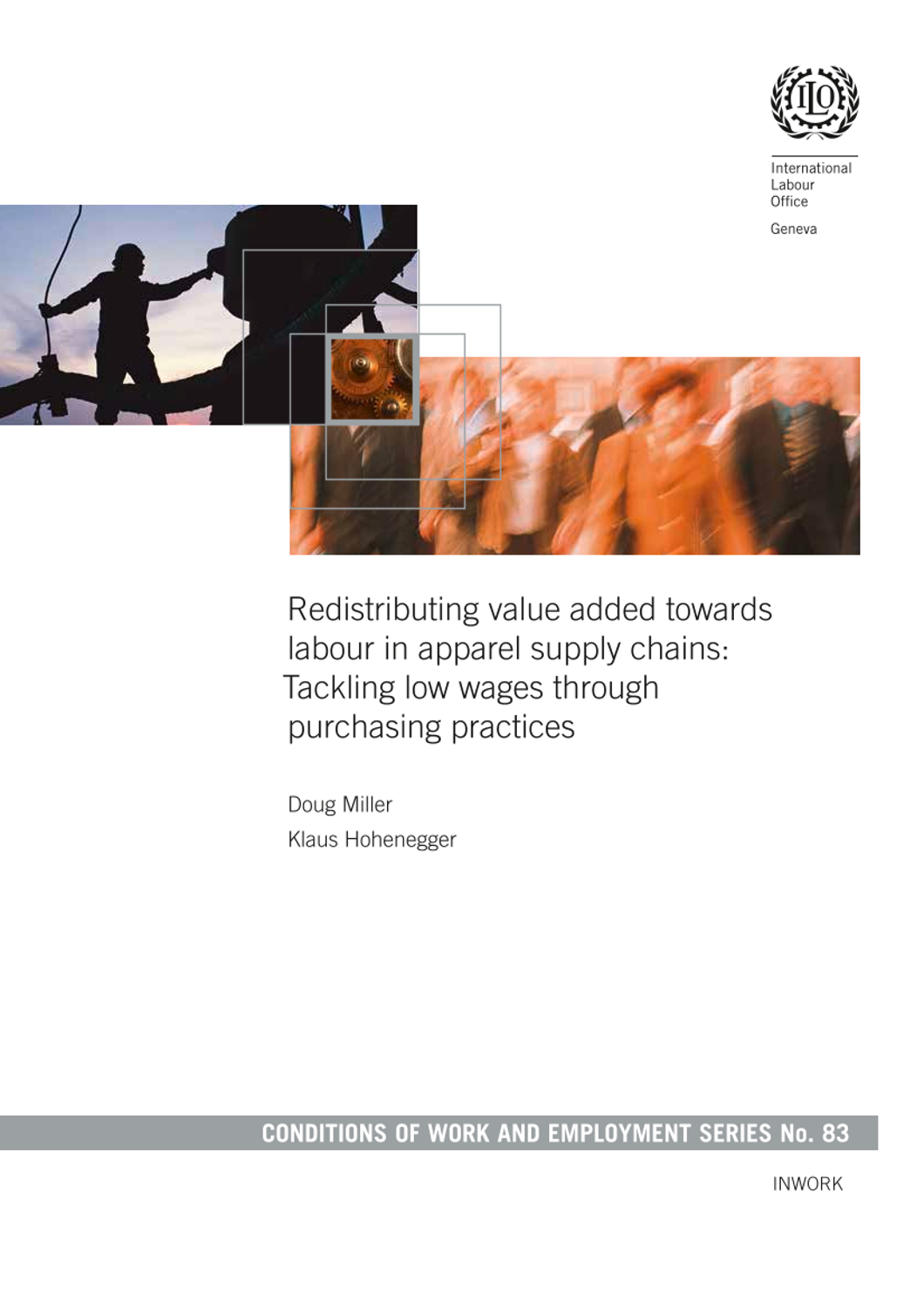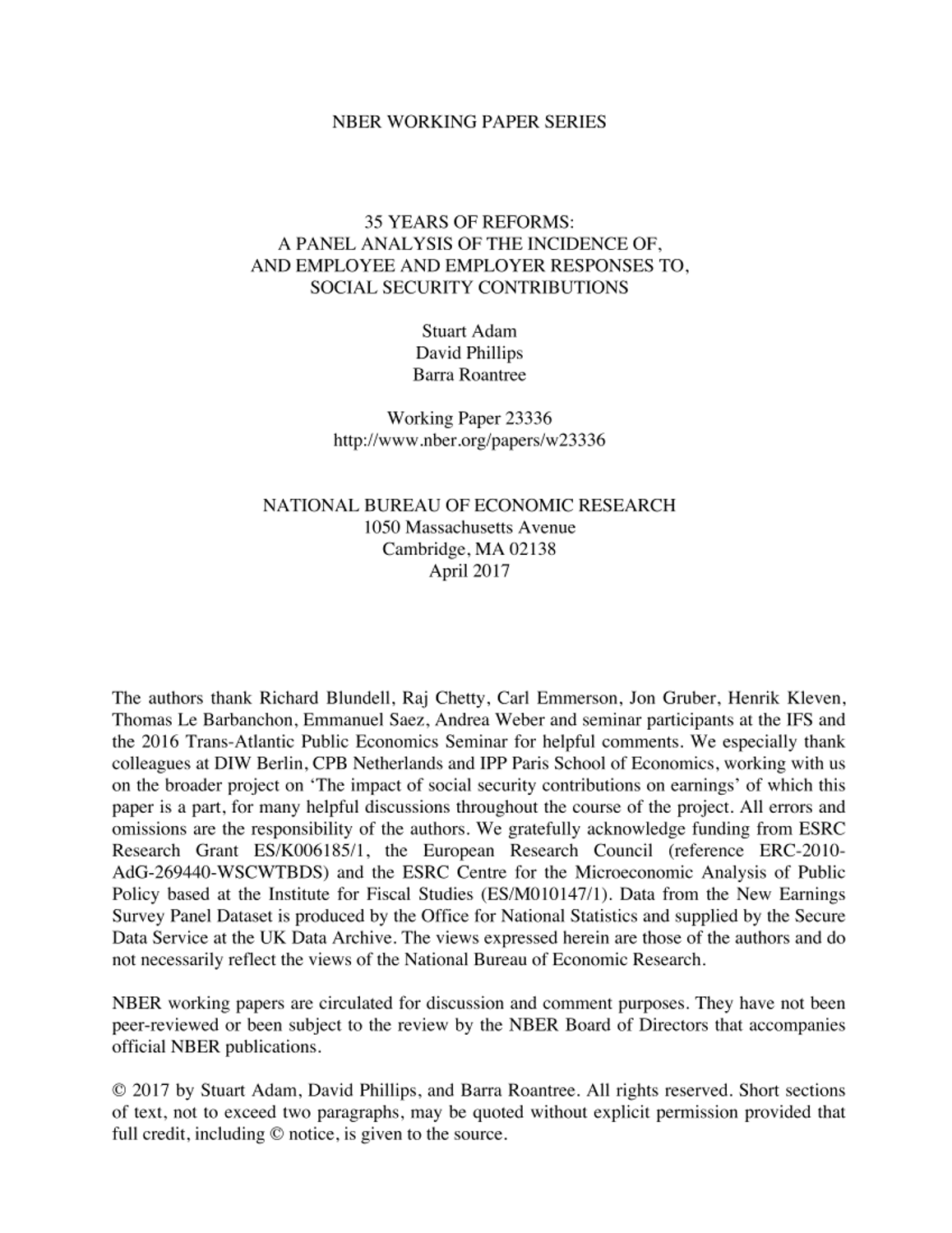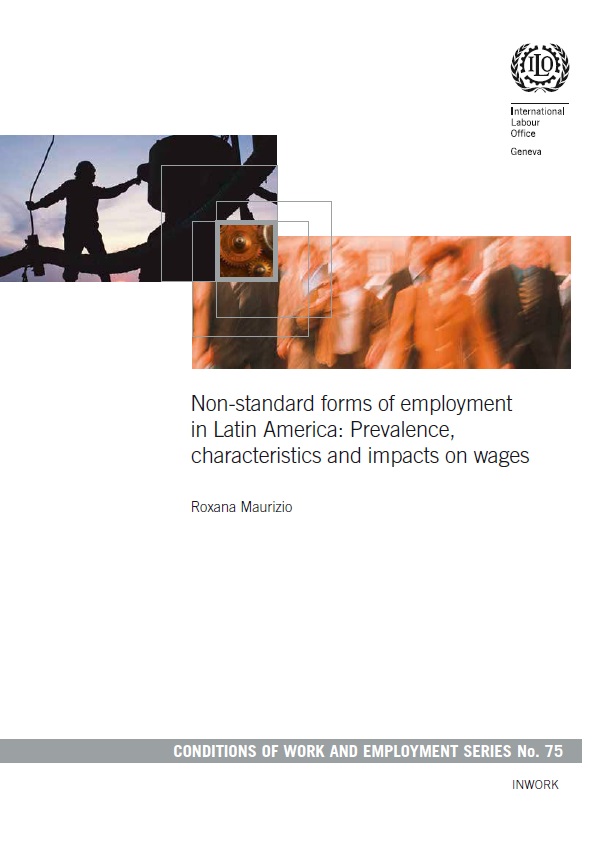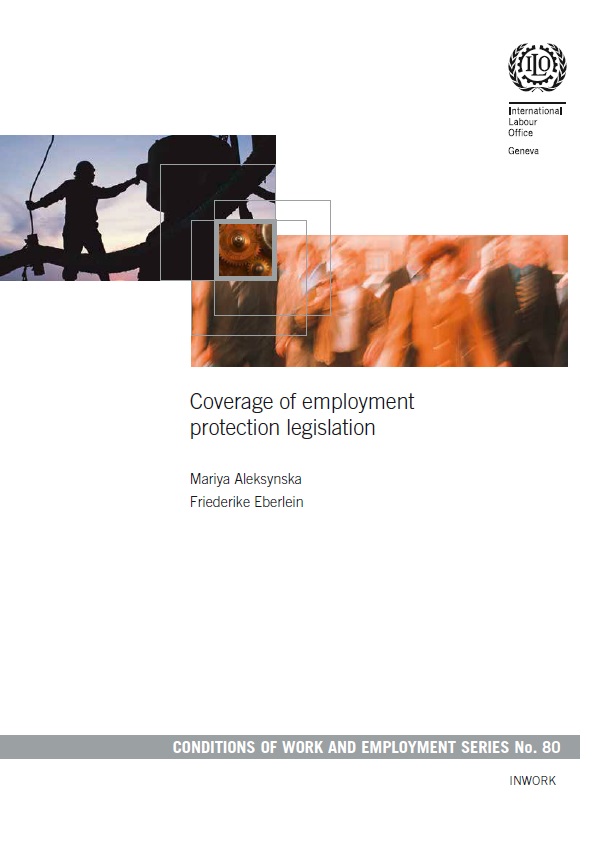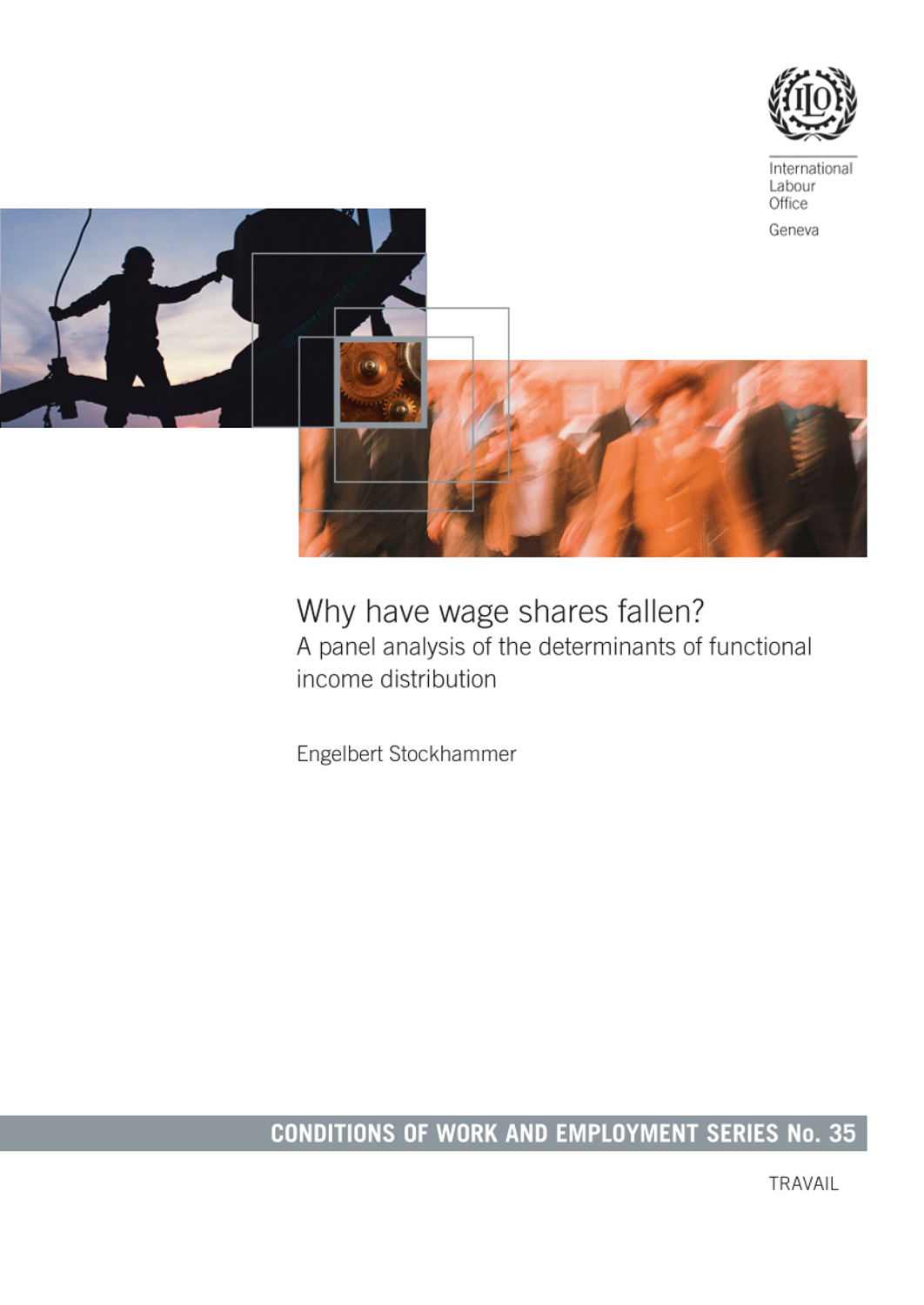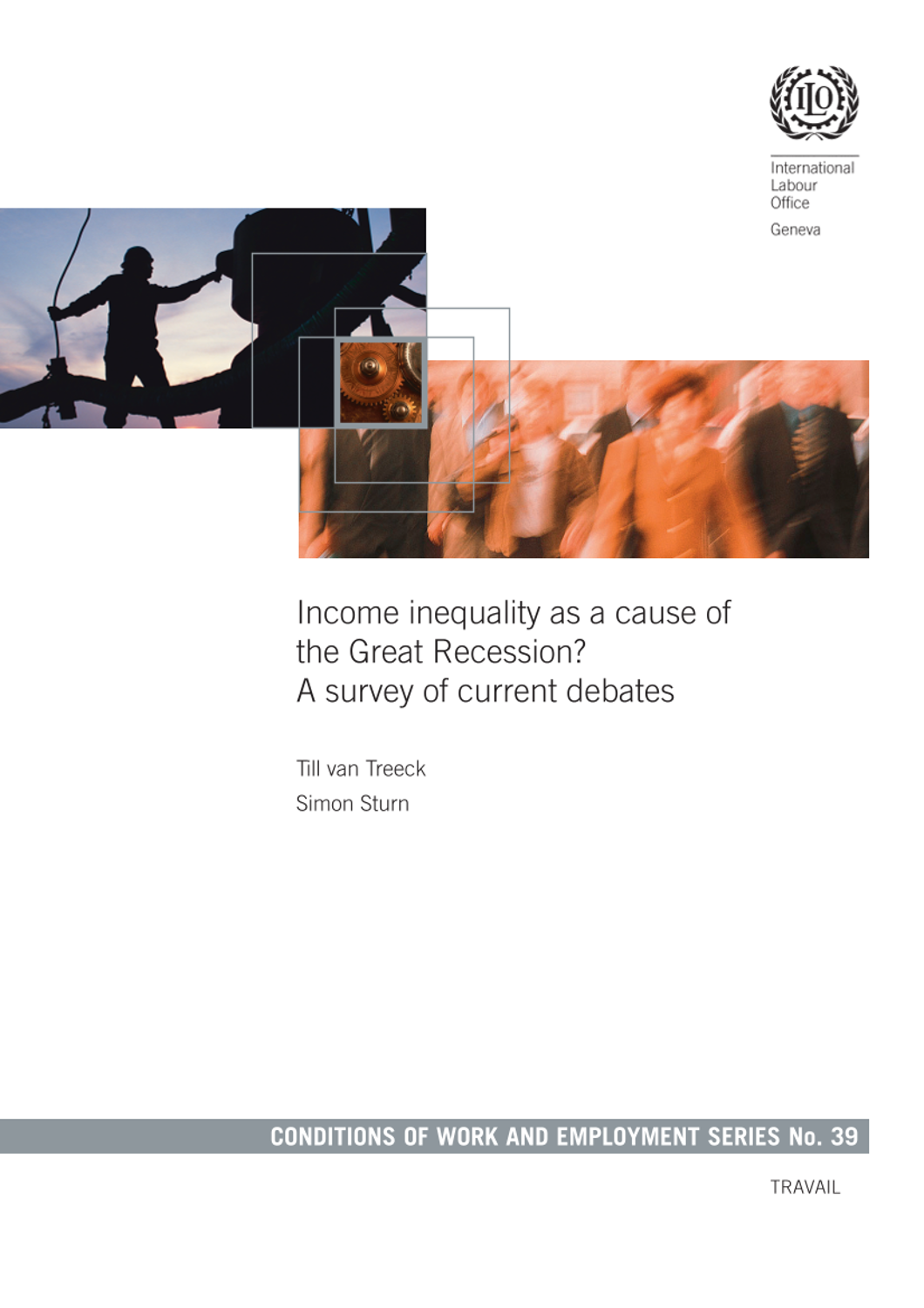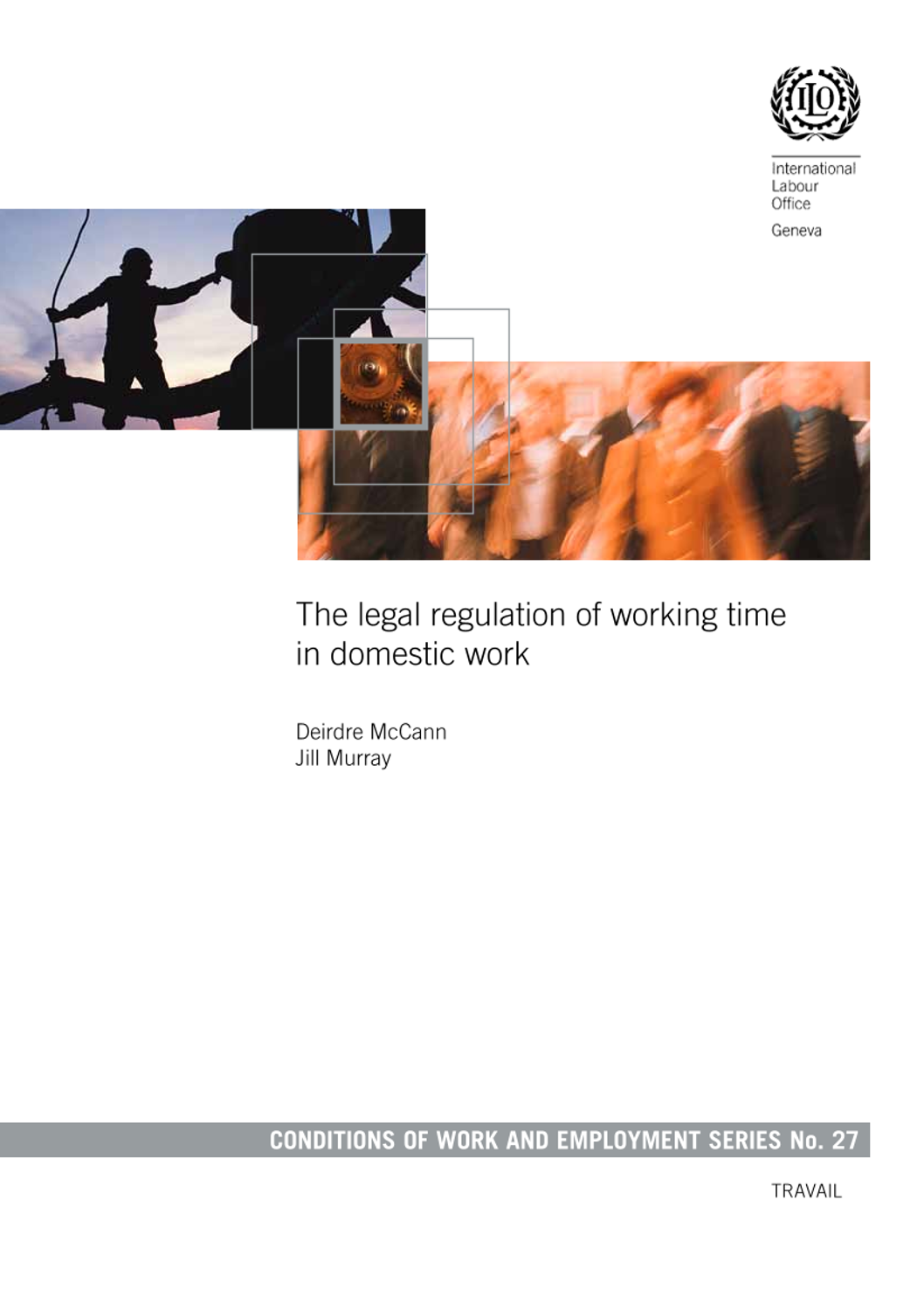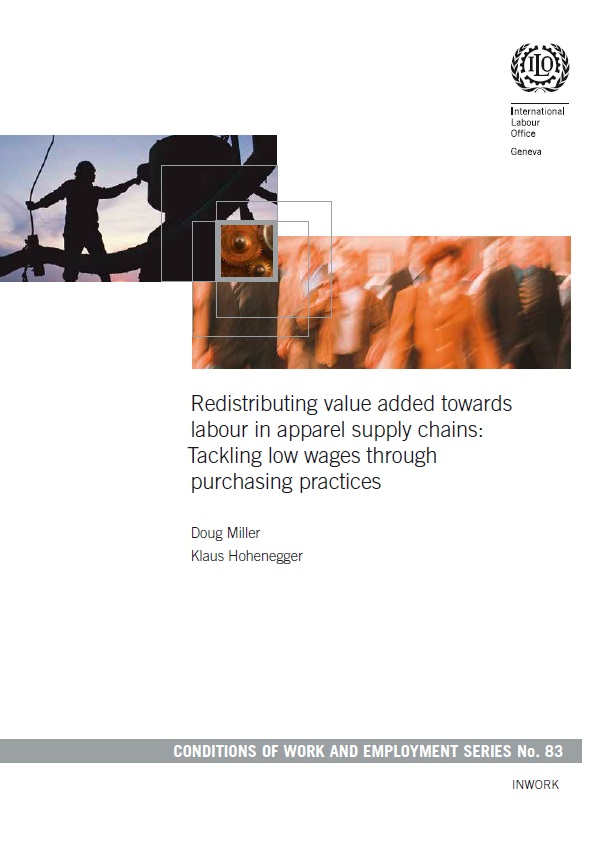
연구보고서Conditions of Work and Employment Series 83
Redistributing value added towards labour in apparel supply chains: tackling low wages through purchasing practices
- 청구기호
- CWES 83
- 발행사항
- Geneva : ILO, 2016
- 형태사항
- 51 p. :. PDF file ;. 717 KB
- 키워드
- Clothing industry, Labour cost, Sewing, Value chains, Wage determination, Purchasing, Collective bargaining
- 바로가기
소장정보
| 위치 | 등록번호 | 청구기호 / 출력 | 상태 | 반납예정일 |
|---|---|---|---|---|
이용 가능 (1) | ||||
| E0002324 | 대출가능 | - | ||
이용 가능 (1)
- 등록번호
- E0002324
- 상태/반납예정일
- 대출가능
- -
- 위치/청구기호(출력)
책 소개
Efforts to redistribute value added in favour of apparel production workers are made complex by a structurally asymmetrical value chain where the potential for wage increases may be compromised by a footloose, buyer driven, outsourced system of production. Measuring change in the distribution of value added to capital and labour within such parameters is virtually impossible. However it is possible to deconstruct the capturing of gain at the level of an individual apparel product. This is the starting point and the methodological basis for this working paper which attempts to deconstruct labour costing in different national and product contexts. The paper demonstrates that there is room within buyer margins for a redistribution of value added. A critical assessment of existing individual buyer attempts to address their code of conduct commitments with respect to a 'living' wage highlights the limits and possibilities of such efforts and points towards collective buyer efforts - specifically plans for industry wide bargaining mooted, for instance, by the 'Action Collaboration Transformation' initiative (ACT). The establishment of industry-wide collective bargaining in key garment and textile sourcing countries, supported by world class manufacturing standards and responsible purchasing practices, is likely to require a degree of collective intra-organisational negotiation between buyers and suppliers to agree on a labour minute value which can deliver any new wage increase within manufacturing standards geared towards improving efficiency. The implementation of such industry wide bargains at the level of the firm could have serious implications for workers in terms of job security and work intensification, issues for which organised labour will need to prepare.
목차
Abstract
Acknowledgements
Abbreviations
Introduction
Part 1 Existing Practices
Part 2 Buyer-driven labour costing
Part 3 Supplier-driven labour costing
Part 4 Assessing Living Wage pilots
Part 5 Sectorial Bargaining towards a Living Wage
Conclusion
References
Conditions of Work and Employment Series

